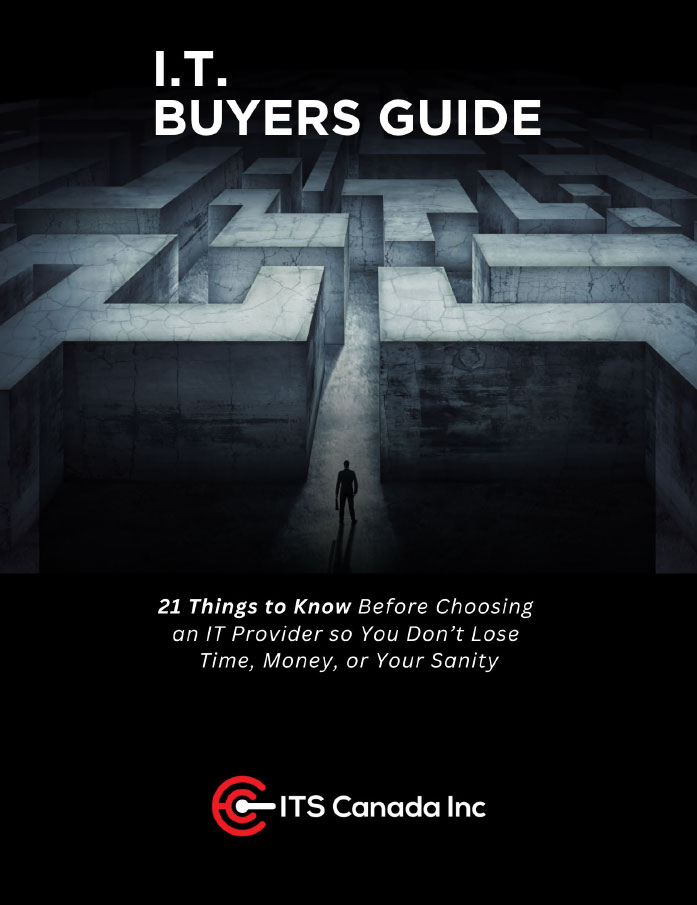
Remember when shadow IT was the biggest security concern keeping managing partners up at night? Well, there's a new challenge in town, and it's evolving at breakneck speed: shadow AI.
What Exactly Is Shadow AI?
Shadow AI mirrors the concept of shadow IT, but with critical implications for Canadian professional services. While shadow IT involved employees downloading unapproved applications to boost efficiency, shadow AI refers to the unauthorized use of AI-powered tools that operate outside formal governance structures. These tools are accessible through personal devices and browsers, making them incredibly easy to adopt and equally difficult to control.
The explosion is undeniable. Since ChatGPT hit mainstream 18 months ago, AI spending has skyrocketed across firms of all sizes. Tools like Microsoft Copilot are being slipstreamed into existing platforms, meaning if you're an Office 365 tenant, you already have AI in your environment whether you've established governance around it or not.
The Well-Intentioned Professional Problem
Here's the uncomfortable truth for Canadian CPA firms and law practices: professionals using shadow AI aren't malicious insiders. They're trying to meet client deadlines, analyze financial statements more efficiently, draft legal documents faster, and deliver better results. The tools are free, accessible, and offer genuine efficiency gains. When firms lock down AI access on business devices, professionals simply switch to personal devices, and sensitive client data inevitably follows.
The real culprit? A lack of proper governance models that address the unique regulatory landscape Canadian professional service firms operate within. Firms struggle to implement AI tools at the pace professionals demand them, creating a dangerous gap between productivity desires and compliance realities.
Real-World Wake-Up Calls
The risks became crystal clear when Samsung engineers entered confidential software code into ChatGPT. The company had no visibility into what happened to that proprietary code, where it went, or how it might be used to train future models. Samsung's response? An immediate, company-wide ban on ChatGPT.
For Canadian professional services, imagine similar scenarios: an articling student pasting client financial data into an AI tool to speed up analysis, a junior associate using ChatGPT to draft a confidential legal memo, or a tax professional uploading sensitive CRA correspondence for quick summarization.
But banning isn't a sustainable solution. New AI tools emerge constantly, and professionals will find workarounds. More importantly, firms that reject AI entirely sacrifice significant competitive advantages in an increasingly competitive marketplace.
The Data You Can't Take Back: Canadian Compliance Implications
Once data enters an AI model's training process, it's nearly impossible to remove. This creates severe implications for Canadian professional service firms operating under strict regulatory frameworks:
For CPA Firms:
- PIPEDA Violations: Personal information of clients entering unsecured AI tools could trigger privacy breaches requiring notification to the Privacy Commissioner
- CPA Code of Professional Conduct: Rule 204 on confidentiality prohibits disclosure of confidential client information without proper authorization
- Provincial Privacy Laws: Quebec's Law 25 and British Columbia's PIPA impose additional obligations and significant penalties
- Client Trust: CPAs are bound by professional standards that require safeguarding client information with appropriate security measures
For Law Firms:
- Solicitor-Client Privilege: Once privileged information enters a public AI model, the privilege may be permanently waived
- Law Society Rules: Provincial law societies across Canada have explicit rules about confidentiality and the duty to protect client information
- Conflicts of Interest: Information from one client's matter could theoretically be regurgitated in responses to queries about opposing parties
- Professional Liability: Failure to protect client confidentiality can result in disciplinary action, lawsuits, and reputational damage
Air Canada learned this lesson when a poorly governed AI chatbot promised free tickets to customers, demonstrating how inadequate implementation can create both legal and business liabilities. The Canadian Transportation Agency ultimately held Air Canada responsible for its chatbot's representations.
Specific Risks for Canadian Professional Services
Financial Data Exposure CPAs working with client financial statements, tax returns, or confidential business valuations could inadvertently expose sensitive information that competitors or malicious actors could access through clever prompting.
Legal Strategy Disclosure Law firms risk exposing litigation strategy, settlement negotiations, due diligence findings, or confidential corporate transactions if professionals use shadow AI for document drafting or research.
Cross-Border Data Transfer Many AI tools store and process data in the United States or other jurisdictions, creating potential violations of Canadian data residency requirements and client agreements that specify data must remain in Canada.
Regulatory Reporting Both professions face mandatory breach reporting requirements. Once shadow AI has leaked data, firms may be obligated to report to privacy commissioners, law societies, professional bodies, and affected clients.
The Path Forward: Governance Over Bans
The solution isn't to ban AI and sacrifice efficiency. Instead, Canadian CPA firms and law practices must:
Establish Robust Governance Frameworks Aligned with Canadian Standards Create clear policies around AI usage that balance productivity with professional obligations. Define which tools are approved, how they should be used, and what data can be processed. Ensure policies address PIPEDA, provincial privacy laws, and professional conduct rules.
Provide Secure, Canada-Compliant Alternatives Give professionals approved AI tools that meet their needs while maintaining security and compliance standards. Consider enterprise versions of AI tools with data residency guarantees, no-training clauses, and Canadian data centres.
Build AI Culture Through Targeted Training Help professionals understand both the power and risks of AI in the context of their professional obligations. Training should cover solicitor-client privilege, CPA confidentiality rules, and real scenarios relevant to daily practice.
Conduct Risk Assessments for Your Practice Areas Review which workflows involve sensitive data and assess the risks of AI integration. Tax preparation, financial statement analysis, legal research, and document drafting all require different governance approaches.
Monitor and Assess Usage Patterns Review traffic logs, browser histories, and app usage not to catch wrongdoers, but to understand how AI is being used. Conduct surveys with practice group leaders and department heads to identify pain points and opportunities for safe AI integration.
Implement Technical Controls Use data loss prevention tools, network monitoring, and endpoint security to detect unauthorized AI usage. Consider web filtering that allows approved AI tools while blocking unapproved ones.
Act Fast When Issues Arise If shadow AI has already leaked data, follow incident response protocols immediately. This may include notifying the Privacy Commissioner, affected clients, and your professional liability insurer. While you can't unlearn trained models, you may be able to implement guardrails to prevent further exposure.
What Canadian Regulators Are Watching
The Office of the Privacy Commissioner of Canada has already signaled increased scrutiny of AI systems. Provincial law societies are developing guidance on AI usage. CPA Canada is issuing best practices for technology adoption. Firms that fail to establish proper governance frameworks now risk being caught unprepared when regulatory enforcement intensifies.
The Competitive Advantage of Getting It Right
Forward-thinking Canadian firms that implement AI governance properly will gain significant advantages:
- Efficiency Gains: Professionals can leverage AI for routine tasks, freeing time for high-value client work
- Risk Mitigation: Proper controls reduce exposure to breaches, regulatory penalties, and professional liability claims
- Client Confidence: Demonstrating robust AI governance can become a competitive differentiator in client pitches
- Talent Attraction: Younger professionals expect modern tools and will gravitate toward firms that embrace technology responsibly
The Bottom Line
Managing partners and firm leaders shouldn't fear shadow AI itself; they should fear lack of control. AI represents an opportunity to become a force multiplier for Canadian professional service firms, but only with proper implementation and governance that respects our unique regulatory landscape.
Professionals are already showing they want to use AI. The question isn't whether your firm will adopt it, but whether you'll control that adoption or let it control you. Firms that proactively establish governance, provide training, and empower professionals with secure tools will gain competitive advantages while managing compliance risks.
Those that don't? They're already dealing with shadow AI whether they realize it or not, and they're potentially exposing themselves to professional liability, regulatory sanctions, and irreparable damage to client trust.
The technology is here to stay. The choice is yours: harness it properly within Canadian regulatory frameworks, or watch it operate in the shadows of your practice.
How ITS Canada Inc. Can Help
Navigating AI governance doesn't have to be overwhelming. At ITS Canada Inc., we specialize in helping Canadian CPA firms and law practices develop secure, compliant AI strategies that protect client confidentiality while unlocking productivity gains.
Our AI & Automation Advisory Services Include:
- AI Risk Assessments: We evaluate your current shadow AI exposure and identify where sensitive data may be at risk
- Governance Framework Development: Build PIPEDA-compliant and profession-specific policies that address solicitor-client privilege, CPA confidentiality rules, and provincial requirements
- Secure AI Implementation: Deploy enterprise AI tools with Canadian data residency, no-training guarantees, and proper safeguards
- Cybersecurity & Compliance Advisory: Ensure your AI strategy aligns with Law 25, provincial privacy laws, and professional conduct standards
- Staff Training Programs: Educate professionals on safe AI usage within their ethical and regulatory obligations
- Technology Assessments: Discover what shadow AI tools are already in use and create a roadmap for safe integration
With decades of experience serving accounting firms, legal practices, and regulated industries across Southern Ontario and beyond, we understand the unique compliance challenges Canadian professional services face.
Ready to take control of AI in your practice?
Let's build a smarter, more secure AI strategy together. Contact ITS Canada Inc. for a confidential consultation about your firm's AI governance needs.
Book a call today to discuss how we can help your firm harness AI safely and compliantly.





